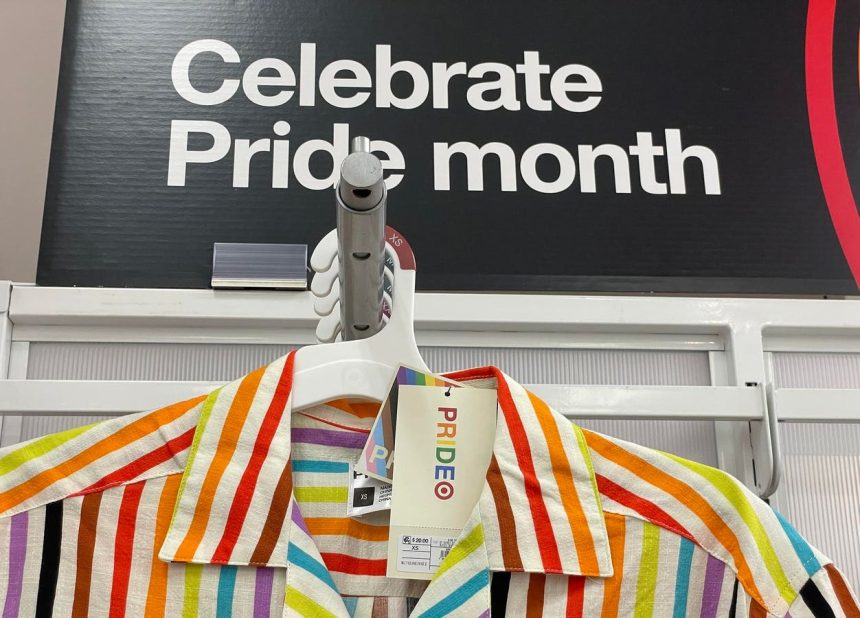The intersection of diversity, equity, and inclusion (DEI) initiatives with corporate governance and shareholder litigation has created a complex and often contradictory landscape for businesses. Two recent lawsuits, one against Target and another against Lululemon, exemplify this emerging trend, showcasing the precarious balance companies must strike in navigating the often-conflicting demands of various stakeholders. While Target faces accusations of overzealous DEI efforts, Lululemon stands accused of not doing enough, highlighting the “damned if you do, damned if you don’t” predicament faced by many corporations in the current socio-political climate.
The lawsuit against Target, brought forth by shareholder Brian Craig and supported by America First Legal, alleges that the company misled investors about the potential risks associated with its 2023 Pride Month campaign. The plaintiffs argue that Target’s DEI initiatives, specifically those related to the Pride campaign, resulted in significant consumer backlash and a subsequent drop in market capitalization. The core of the complaint revolves around the assertion that Target failed to adequately disclose the potential financial risks stemming from these initiatives, thereby violating its fiduciary duty to shareholders. The judge’s recent ruling, allowing the case to proceed, underscores the importance of transparent risk assessment and disclosure related to DEI and broader ESG (Environmental, Social, and Governance) policies. The ruling suggests that companies cannot simply claim to have considered social and political risks; they must demonstrate a robust and demonstrable process for evaluating and mitigating those risks.
Conversely, Lululemon faces a derivative lawsuit alleging insufficient DEI efforts. This suit, filed by shareholders Shane Kanaly and James Wong, claims that Lululemon’s stated commitment to diversity and inclusion is merely performative and has not translated into meaningful change within the company. Citing a Business of Fashion investigative report detailing allegations of racial discrimination within Lululemon, the plaintiffs contend that the company has failed to live up to its publicly stated DEI goals. This case represents a less common type of DEI-related litigation, focusing on alleged inaction rather than the perceived overreach that characterizes the Target lawsuit. It highlights the growing expectation that companies not only establish DEI programs but also demonstrate tangible progress and accountability in achieving their stated objectives.
These contrasting lawsuits illuminate the challenging terrain companies navigate in the realm of DEI and ESG. While Target is accused of alienating a segment of its customer base with its Pride campaign, Lululemon faces criticism for allegedly perpetuating a discriminatory work environment. This divergence underscores the difficulty in establishing universally accepted DEI practices and the potential for backlash from various stakeholder groups, regardless of the specific approach taken. The legal implications of these cases extend beyond the individual companies involved, potentially influencing how other organizations approach DEI initiatives and risk disclosure moving forward.
The Target case specifically raises questions regarding the extent to which companies are required to anticipate and disclose potential consumer reactions to DEI-related marketing campaigns. The judge’s decision to allow the case to proceed suggests that companies must demonstrate a thorough understanding of the potential risks and rewards associated with such initiatives, and must communicate these assessments transparently to investors. This ruling could potentially lead to increased scrutiny of corporate DEI strategies and a greater emphasis on quantifying and disclosing potential financial impacts.
The Lululemon case, on the other hand, highlights the importance of aligning internal DEI practices with public pronouncements. Simply establishing DEI programs is no longer sufficient; companies must demonstrate tangible progress and address internal concerns regarding discrimination and inequity. The lawsuit underscores the growing demand for accountability and transparency in DEI efforts, and the potential legal consequences of failing to meet these expectations.
Both the Target and Lululemon lawsuits contribute to the evolving legal and social landscape surrounding DEI and ESG. They represent two sides of a complex coin, illustrating the challenges companies face in balancing competing stakeholder interests and navigating the often-polarized discourse surrounding diversity and inclusion. These cases serve as a cautionary tale for other organizations, emphasizing the need for careful consideration of DEI strategies, robust risk assessment processes, transparent communication with investors, and a genuine commitment to creating inclusive and equitable workplaces. The outcomes of these lawsuits will likely have far-reaching implications for how companies approach DEI and ESG initiatives in the future. They underscore the increasing importance of these issues in the corporate world and the growing expectation that businesses will not only embrace diversity and inclusion but also demonstrate tangible progress in achieving these goals.



